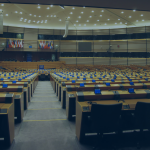In January 2024, the UK public was gripped by revelations from the Post Office Horizon IT scandal inquiry, where whistleblowers’ warnings about flawed accounting software were ignored for years, leading to wrongful prosecutions of sub-postmasters and a national outcry. It is a stark reminder of the cost of silence. Why, in 2025, is whistleblowing still so controversial yet so critical? This article investigates the evolving role of whistleblowing in the modern organisational world, exploring its challenges, legal landscape, cultural shifts, and how embracing it can turn risk into resilience.
Why Speaking Up Matters
Whistleblowing today isn’t about chatter, gossip or tattle, it’s a vital tool for corporate self-correction. In our age of ESG and stakeholder capitalism, alerting management to misconduct helps firms course-correct before reputational or financial harm occurs.
Innovative platforms like Vault Platform enable truly anonymous reporting through mobile and web apps, harnessing AI to spot patterns and boost engagement by 30% compared to legacy systems. They complement open-source tools such as GlobaLeaks, which dozens of European anti‑corruption programmes use to protect anonymity.
These “speak‑up” cultures are now integral to DEI efforts, signalling to employees that raising concerns is welcome, not punished. Activist investors have noticed too, pressing companies to ensure ethical supply chains and transparent operations.
Yet fear endures: PwC’s 2024 Global Workforce Hopes and Fears survey found that 63% of employees worry about retaliation if they speak up. Forward-looking firms are reframing whistleblowing as a competitive advantage, embedding it in leadership KPIs and culture dashboards.
In short, encouraging speaking up should not be a compliance box-tick, it’s a growth strategy that boosts resilience, trust and long-term success in today’s corporate world.
The Challenges Faced
For whistleblowers, speaking up can feel like career suicide. Retaliation, professional isolation and even dismissal remain common. The Post Office Horizon scandal epitomised these risks: sub-postmasters who raised concerns were not only ignored but prosecuted, leading to financial ruin and years of emotional trauma. The psychological toll can also be immense. Studies show whistleblowers often suffer from anxiety, depression and burnout, exacerbated by prolonged legal battles and financial insecurity. A 2023 report by Protect, the UK’s whistleblowing charity, found 41% of whistleblowers felt their concerns were not acted upon, increasing feelings of futility.
But organisations that fail to listen pay a price too: scandals, regulatory fines and reputational damage can dwarf the cost of preventative action. To combat this, forward-thinking companies are trialling AI-driven systems to detect patterns of misconduct early. Others appoint ombudspersons and offer third-party hotlines, creating neutral spaces for employees to report concerns.
A fresh idea from the US, “retaliation insurance”, provides financial protection for whistleblowers facing legal reprisals. If adopted in the UK, it could transform the whistleblowing landscape, ensuring that doing the right thing doesn’t come at a devastating personal cost.
Building a Speaking up Culture
Why do employees still hesitate to speak up? Fear of retaliation, being labelled a troublemaker, or simply believing nothing will change are powerful deterrents. To overcome this, leading organisations are reframing whistleblowing as a cultural health check rather than a last-resort alarm.
Harvard professor Amy Edmondson’s concept of psychological safety, where team members feel safe to voice concerns without fear, has been embraced by firms like Google and Novartis. Netflix’s Freedom and Responsibility culture similarly encourages constructive dissent as a driver of innovation. In Europe, ABN AMRO Bank saw a 30% rise in internal reporting after embedding “speak-up” metrics into leadership KPIs and providing managers with training to handle disclosures neutrally.
Actionable steps for any organisation include CEOs publicly valuing employee feedback, appointing “speak-up champions” across departments, and rewarding ethical interventions. Progressive companies treat internal disclosures as vital feedback loops, not threats, building trust, resilience and better governance. Actually, by normalising speaking up, businesses turn potential crises into opportunities for growth and ethical leadership.
Whistleblowing: The Law on Your Side
Whistleblowers in the UK are protected under the Public Interest Disclosure Act 1998 (PIDA), but critics argue it is outdated. In 2025, campaigners continue to push for reforms to align with the EU’s more robust Whistleblowing Directive, which mandates confidential reporting channels and protects against retaliation across member states.
The EU Directive, which came into force in December 2021, set a deadline for member states to implement compliant systems by December 2023. However, rollout has been uneven. Germany and France have introduced comprehensive protections, while others lag behind, attracting EU scrutiny and fines for non-compliance.
In the UK, debates continue around the use of non-disclosure agreements (NDAs) to silence whistleblowers. Recent cases, including Barclays’ handling of internal complaints, have prompted calls for limits on NDAs and greater regulatory intervention.
For businesses, the takeaway is clear: establish clear, confidential reporting systems, train staff and monitor compliance. Regulators increasingly “name and shame” companies that fail whistleblowers, meaning reputational damage may prove a stronger deterrent than fines. Proactive compliance is no longer optional, it’s essential.
Whistleblowing Strengthens Organisaitons
Far from being a liability, whistleblowing can be a powerful asset for businesses. Internal reporting acts as an early warning system, enabling leaders to identify misconduct before it escalates into costly scandals. This proactive approach reduces litigation risks, improves governance and enhances employee trust, all key ingredients for long-term success. Research by the Ethics & Compliance Initiative (ECI) shows companies with strong whistleblowing frameworks outperform peers on ESG (Environmental, Social and Governance) metrics, attracting investors and talent alike.
A compelling example is Danish pharmaceutical giant Novo Nordisk, which used whistleblower insights to overhaul its compliance programmes. By embedding regular feedback loops and anonymous reporting tools, it reduced regulatory investigations and saw employee retention rise.
Leaders should view whistleblowing not as a threat but as a catalyst for building “antifragile” organisations; entities that grow stronger under scrutiny and adapt to challenges. By fostering transparency and accountability, businesses turn potential crises into opportunities for innovation and resilience. In 2025, ignoring this is no longer an option, it’s a clear competitive disadvantage.
So, to the Future
As we look ahead, the next frontier in whistleblowing may lie in AI-driven detection. Emerging systems already anonymise reports and flag misconduct before human whistleblowers need to intervene, thereby serving as the silent guardians of corporate integrity. Organisations could evolve into truly “transparent by design” entities, embedding open feedback mechanisms into every process to the point where whistleblowing feels intrinsic, not exceptional. Yet even as technology advances, the human elements of courage, accountability and ethical leadership remain indispensable. In the end, organisations that listen to the quiet warnings will avoid the loud scandals.
And what about you…?
- What systems or processes does your organisation currently have in place to encourage and support whistleblowing – and how effective do you believe they are?
- What one change could you make within your role or organisation to move towards a culture where speaking up is welcomed and valued?







